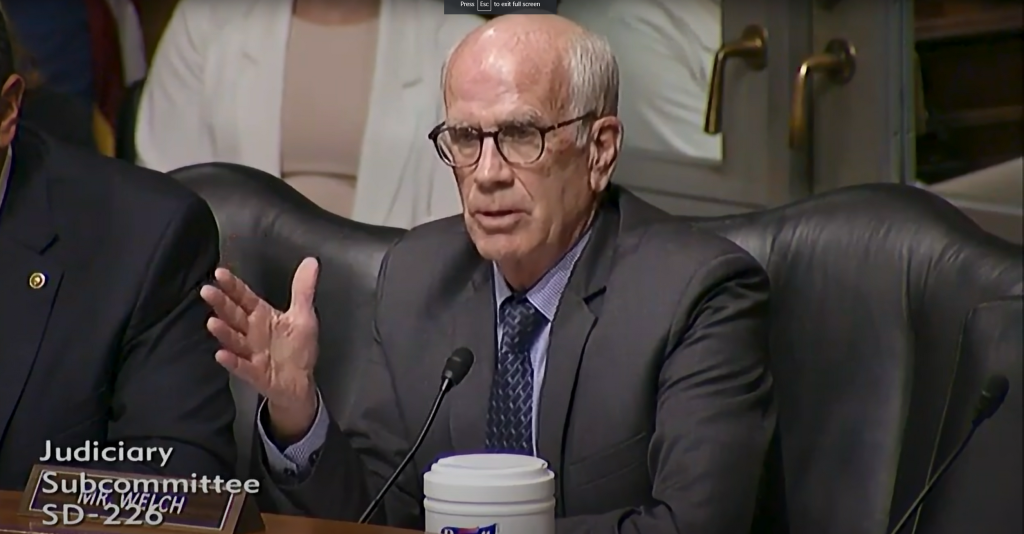WASHINGTON—Senator Peter Welch (D-VT) joined the Senate Committee on the Judiciary’s Subcommittee on Federal Courts, Oversight, Agency Action, & Federal Rights yesterday to call for the passage of the Supreme Court Ethics, Recusal, and Transparency (SCERT) Act of 2023, legislation that would establish a code of conduct for Supreme Court Justice. The bill’s introductionfollows numerous reported instances of ethical misconduct by Justice Clarence Thomas and public confidence in the Supreme Court at an all-time low. At present, the Supreme Court does not abide by a formal code of conduct.
“I am extremely worried about what’s happening on the Supreme Court and what’s happening with the failure of the Chief Justice to relieve us of this public spectacle. I’m worried because the Supreme Court has to be a credible institution in our democracy. And I’m worried about how that has eroded with the unwillingness of that court to subject itself to the same ethical requirements that 850 other federal judges adhere to,” said Sen. Welch. “Congress has a role to play. The court has a role to play with ethics, and the court has a role to play with respecting the right of the majority to legislate decisions on behalf of the public interest.”
The SCERT Act would:
Create Code of Conduct and Develop a Process for Enforcement
- Require the Supreme Court to adopt a code of conduct within 180 days;
- Require the Supreme Court to publish its code of conduct and any other rules or procedures related to ethics, financial disclosure, and judicial misconduct;
- Require the Supreme Court to create a transparent process for the public to submit ethics complaints against the justices, and for a random panel of chief judges from the lower courts to investigate and make recommendations based on those complaints.
Improve Hospitality and Financial Disclosures
- Require the Supreme Court to adopt rules requiring disclosure rules for gifts, travel, and income received by justices and law clerks that are at least as rigorous as the House and Senate disclosure rules;
- Require greater disclosure of amicus curiae funding;
- Require parties and amici curiae before the Supreme Court to disclose any recent gifts, travel, or reimbursements they’ve given to a justice;
- Require parties and amici curiae before the Supreme Court to disclose any lobbying or money they spent promoting a justice’s confirmation to the Court.
Strengthen Recusal Requirements
- Create new recusal requirements governing gifts, income, or reimbursements given to judges;
- Create new recusal requirements governing a party’s lobbying or spending money to campaign for a judge’s confirmation;
- Ensure that requests for a judge to recuse are reviewed by a panel of randomly selected, impartial judges, or by the rest of the justices at the Supreme Court;
- Require written notification and explanations of recusal decisions;
- Require the judiciary to develop rules explaining when a judge’s connection to an amicus curiae brief might require recusal; and
- Require the Federal Judicial Center to study and report to Congress every two years on the extent to which the judiciary is complying with recusal requirements.
For video from Sen. Welch’s remarks, please click the image below or click here.

###
